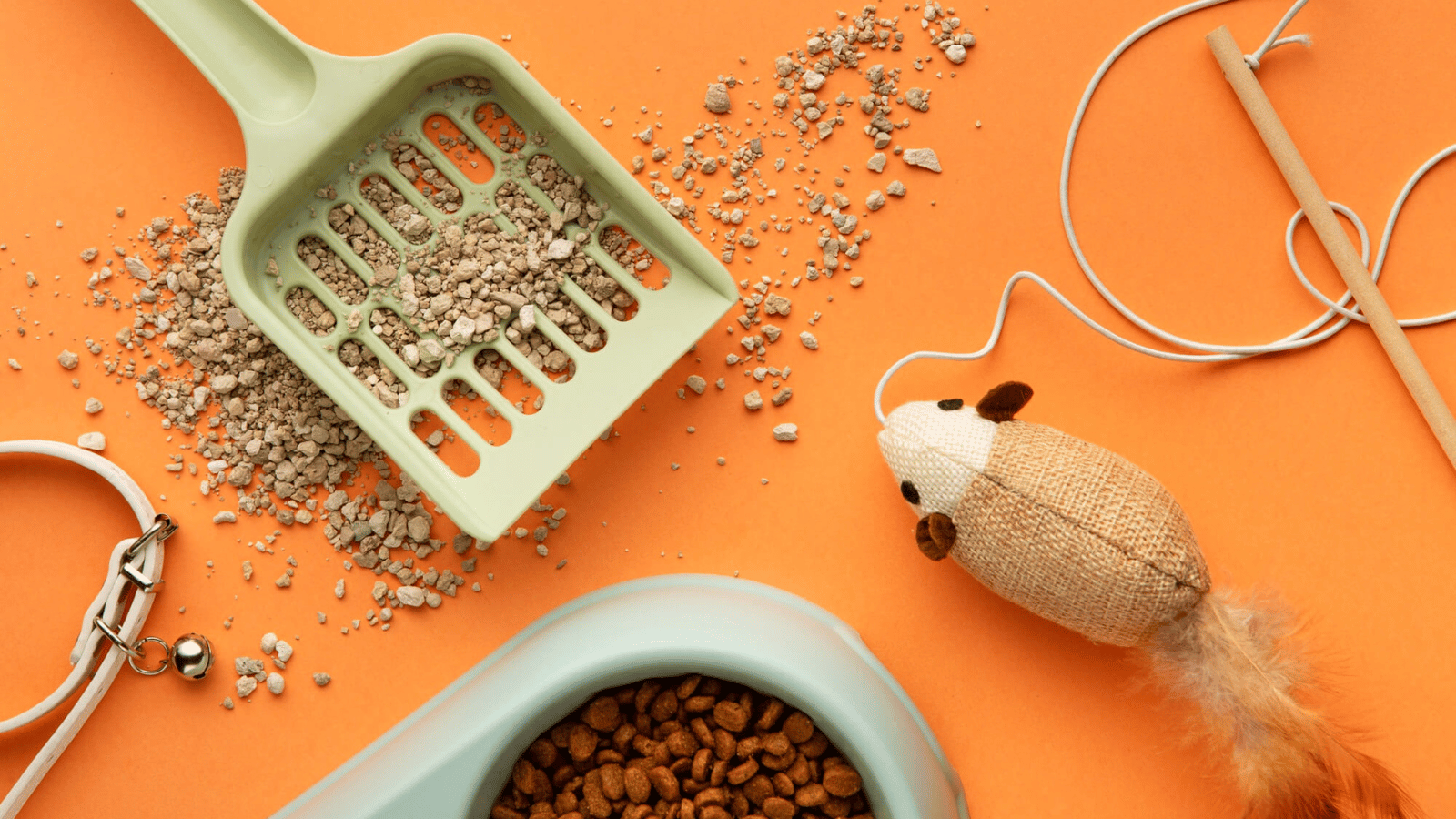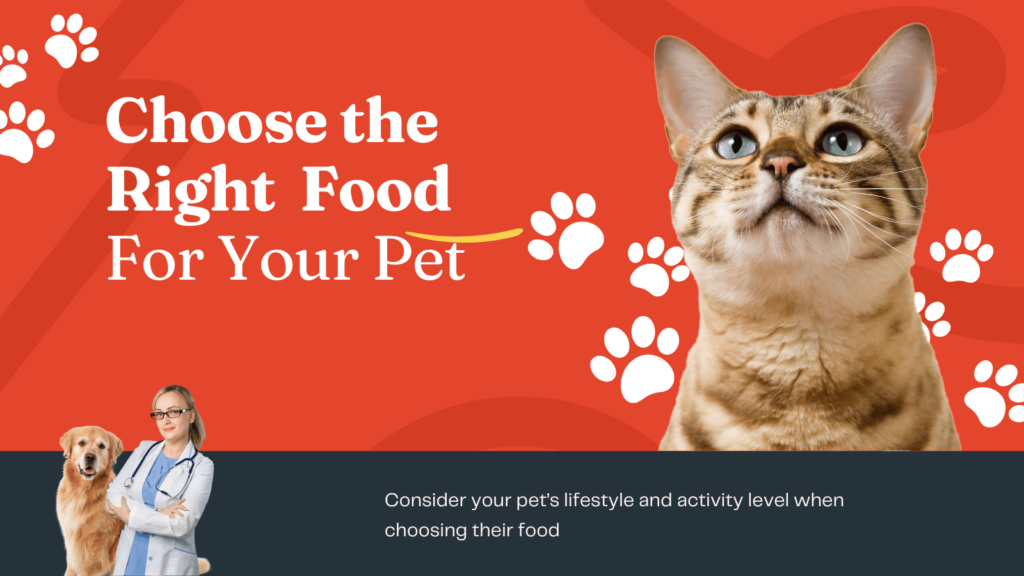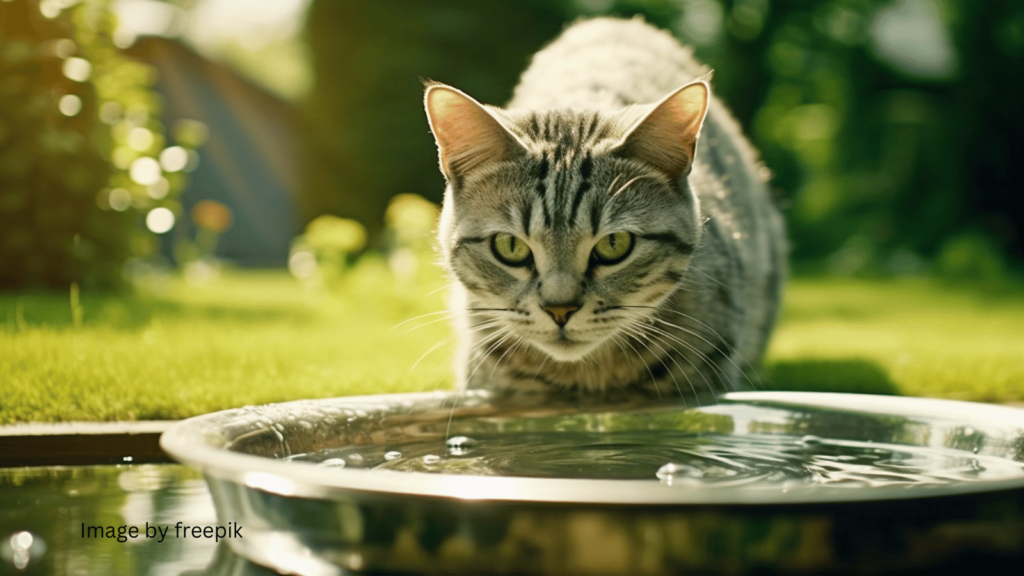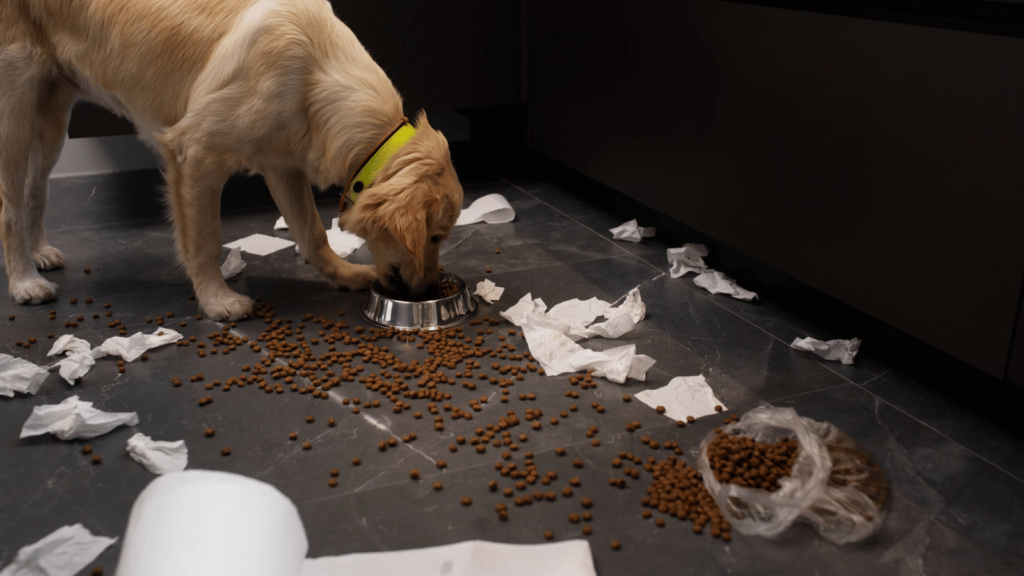Nutrition for your pet is essential for their overall health and well-being. As pet owners, we all want what’s best for our beloved furry friends, and proper nutrition plays a crucial role in achieving that.
It ensures they live long, healthy, and happy lives. In this blog post, we will explore the benefits of providing your pet with a balanced diet and discuss why it is vital for their health. Let’s dive deeper into the importance of proper nutrition for your furry friend.
Nutrition for Your Pet: Common Nutritional Requirements
Proper nutrition is crucial for the health and well-being of our beloved pets. Like humans, your pets also need many vital nutrients in their diets.
These nutrients support their health. These essential nutrients include proteins, fats, carbohydrates, vitamins, and minerals. Each nutrient has a specific role in the body. They are needed for proper growth, development, and function.
Proteins are vital for a dog’s or cat’s diet. They are needed for muscle growth, tissue repair, and overall body maintenance. High-quality proteins are found in meat, poultry, and fish.
They provide the amino acids that pets cannot make. You must ensure that your pet’s diet has enough protein. They support their health and well-being.
Fats are also essential. They provide a lot of energy for dogs and cats. Fats provide energy. They are also key for healthy skin and hair. They support many bodily functions.
Pets need Omega-3 and Omega-6 fatty acids. They fight inflammation and help the heart. Including sources of healthy fats, such as fish oil or flaxseed oil, in your pet’s diet is essential for their overall health.
Carbohydrates give dogs and cats energy. They provide the fuel the animals need for their daily activities.
Role of Protein in Nutrition for Your Pet:
As a pet owner, it is essential to understand the critical role that protein plays in your pet’s nutrition. Protein is often called one of the building blocks of life.
It is essential for the growth, repair, and upkeep of body tissues. In pets, protein is particularly crucial for maintaining healthy muscles, skin, coat, and organs.
Proteins are made up of amino acids, which are the building blocks of protein. There are 22 amino acids. But, only 10 are essential for pets.
They must come from their diet. Good pet food has a balance of these amino acids. They help your pet get all the nutrients they need to thrive.
When choosing a pet food, look for one that lists a high-quality protein source first. It could be chicken, beef, or fish. This will ensure that your pet gets enough protein. It supports their health and well-being.
Also, some pets may need specific proteins based on their age, size, breed, or health. So, it is best to ask your vet to find the best diet for your pet.
Protein provides essential amino acids. It also helps pets keep a healthy weight. Protein fills pets up more than carbs or fats. It can help them feel full for longer and eat less.
This can help overweight pets. A high-protein diet can help them lose extra weight and improve their bodies.
Also, protein is crucial for supporting your pet’s immune system. It plays a key role in making antibodies. These help fight off infections and diseases.
A diet that is lacking in protein can weaken your pet’s immune system, making them more susceptible to illnesses. Adequate protein in their diet will help strengthen their immune system. It will keep them healthy and happy for years to come.
Protein is a key nutrient for your pet’s nutrition. It is crucial for their growth, development, and health. Choose a high-quality pet food. It should have a balanced amount of protein. This way, your pet will get all the amino acids they need to thrive. Additionally, a protein-rich diet can help your pet
Essential Fatty Acids:
Essential fatty acids play a crucial role in maintaining the health and appearance of our pets’ skin and coat. Pets need Omega-3 and Omega-6 fatty acids. Their bodies can’t make them. These fatty acids are found in high concentrations in sources such as fish oil, flaxseed oil, and certain plant oils. Adding these important fats to your pet’s diet can improve the shine and health of their coat.
Omega-3 fatty acids, like EPA and DHA, fight inflammation. They can reduce itching and redness in pets with skin allergies or atopic dermatitis. These fats also help maintain the skin’s moisture barrier.
This barrier stops dryness and flakiness. Omega-6 fatty acids, like linoleic acid, are vital. They maintain the skin’s structure and health. Lacking omega-6 fatty acids can lead to a dull coat and dry skin. It also makes skin infections more likely.
Nutritional Considerations for Seniors:
Our furry companions are entering their golden years. It’s important to consider their nutritional needs. This will ensure they age gracefully and stay healthy.
Like humans, senior pets may have changes in metabolism, digestion, and health as they age. Tailoring their diets to meet these needs is crucial. It supports their well-being.
One key consideration when it comes to senior pet nutrition is the amount of protein in their diet. Protein is vital for muscle and energy. But, older pets may need less protein than younger ones.
Too much protein can put strain on the kidneys and may contribute to age-related health issues. You must choose a senior pet food.
It should be specifically formulated with the right amount of protein. This supports their unique nutritional needs.
In addition to protein, older pets may also benefit from increased levels of certain vitamins and minerals. Antioxidants, omega-3 fatty acids, and glucosamine are nutrients.
They can help support joint health, cognitive function, and the immune system. These nutrients can be found in senior pet food formulas, as well as in supplements that can be added to their diet.
Another important consideration when it comes to senior pet nutrition is calorie intake. As pets age, their metabolism may slow down, and they may become less active.
This means they may require fewer calories to maintain a healthy weight. Watching their calorie intake. Adjust their portion sizes accordingly. This can help stop obesity and related health issues in older pets.
Choosing the Right Pet Nutritious Food:
Choosing the right pet food is a crucial decision for pet owners. It can greatly affect their furry friend’s health and well-being. With so many options available on the market, it can be overwhelming to determine which food is the best choice for your pet. Here are some important tips to consider when selecting the best food for your furry friend.
When choosing pet food, it is important to consider your pet’s specific dietary needs. Pets have different nutritional needs. Their needs depend on their age, size, breed, and health.
For example, puppies and kittens need different food than adult dogs and cats. Pets with food sensitivities or allergies may need a special diet. Consult with your veterinarian to determine what type of food is best suited for your pet’s individual needs.
Reading pet food labels’ ingredient lists is essential. It helps you select high-quality food for your pet. Look for whole, natural ingredients, like meat, grains, fruits, and vegetables. Avoid foods with fillers, by-products, and artificial preservatives, colors, and flavors.
Ingredients are listed in descending order by weight, so the first few ingredients are the most important. Choose a pet food that lists a high-quality protein source as the first ingredient.
Consider your pet’s lifestyle and activity level when choosing their food. Active pets need more protein to support their energy. Less-active pets may benefit from a lower-calorie option.
Additionally, some pets may have specific dietary requirements based on their breed or size. For example, big dogs may benefit from food made for their size. It supports their healthy growth.
When choosing pet food, pick a reputable brand. It has undergone tough testing and meets industry standards for quality and safety. Look for brands with a good reputation.
They make high-quality, healthy pet food that is free of contaminants. It meets pets’ nutritional needs. Consider checking reviews and ratings from other pet owners to get an idea of the quality.
Impact of Hydration:
Proper hydration is also important for maintaining the health and vitality of your pet. Just like humans, pets need an adequate intake of water to support their bodily functions and overall well-being.
Dehydration can harm pets. It can cause kidney problems, urinary infections, and heat stroke. Ensuring that your pet has access to clean, fresh water at all times is essential for their health.
Staying hydrated is key. It keeps your pet’s organs and systems working properly. Water helps regulate body temperature. It aids digestion and supports nutrient transport in the body. Your pet needs water.
Without enough, it may get tired and weak. It may also have trouble thinking. Dehydration can also lead to dry skin, a dull coat, and an increased risk of infections.
Proper hydration is especially important for pets who are active or live in hot climates. When pets are exposed to high temperatures or engage in physical activity, they sweat to cool down their bodies.
You must drink water to replace this fluid loss. That will prevent dehydration and overheating. Providing access to water during and after exercise, as well as on hot days, is essential for keeping your pet healthy and safe.
Proper hydration prevents health problems. It can also improve your pet’s vitality and quality of life. Well-hydrated pets are more energetic. They have stronger immune systems and can handle stress better.
A well-hydrated pet is also more likely to maintain a healthy weight and have a shiny, lustrous coat. By prioritizing your pet’s hydration needs, you can help them live a long, happy, and healthy life.
To keep your pet hydrated, watch their water intake. Encourage them to drink. Provide your pet with a clean bowl of fresh water every day, and consider adding wet food to their diet to increase their moisture intake.
If you see signs of dehydration in your pet, such as sunken eyes, lethargy, or dry gums, act fast. Also, watch for excessive panting. Offer your pet water immediately, and contact your veterinarian for further guidance. Dehydration can cause serious health problems. So, it’s essential to address it as soon as possible.
Dangers of Table Scraps:
Credit: https://www.freepik.com
Table scraps may seem like a harmless way to treat your beloved pet, but the reality is that feeding them human food can pose serious health risks.
In this blog section, we will explore the hidden dangers of feeding table scraps to your pet. We’ll also cover why it is important to stick to a diet balanced for their nutritional needs.
Feeding pets table scraps often causes digestive upset. Many human foods are hard for animals to digest. They can cause diarrhea, vomiting, and gut issues. Also, fatty foods can cause pancreatitis. This is a painful and potentially deadly condition.
Nutritional Imbalance: Pets have specific dietary requirements that are different from those of humans. Feeding them table scraps can upset their balanced diet. This can lead to
shortages of vital nutrients. This can weaken their immune system. It can hurt their health and may shorten their life.
Toxicity: Some foods that are safe for humans can be toxic to pets. Chocolate, grapes, onions, and garlic are a few common foods that can harm animals.
Xylitol, a sugar substitute, is another. Feeding table scraps increases the risk of accidental ingestion of these toxic substances.
Pets, like people, gain weight from overeating table scraps. This leads to obesity. Obesity can lead to many health problems. These include diabetes, joint issues, and heart disease.
You must monitor your pet’s calorie intake. They should get a balanced diet suitable for their age, size, and activity level. Avoid overfeeding and limit the intake of high-calorie treats.
Regular exercise is also crucial for maintaining a healthy weight in pets. If you notice signs of weight gain or obesity in your pet, ask your vet for a diet and exercise plan. It should help them reach and keep a healthy weight.
Signs of food allergies:
Pets often have food allergies. These are often unnoticed or misdiagnosed. But, they can have serious consequences if untreated. Pet owners must know the signs of food allergies in their furry friends. They can then seek treatment. Here are some common signs to look out for:
- Food allergies in pets commonly cause digestive issues. These include vomiting, diarrhea, and gas. If your pet has these symptoms often, they may be a sign that they are allergic to something in their diet.
- Skin irritation is another common sign of a pet food allergy. It shows up as itching, rashes, and hot spots. If your pet is always scratching or licking its skin, it could mean they are allergic to their food.
- Pets with food allergies may also get ear infections. These infections cause pain, redness, and discharge in the ears. If your pet is shaking their head or scratching their ears often, have them checked by a vet.
- Pets with food allergies may also have respiratory issues. They can include sneezing, coughing, or wheezing. These symptoms can be a sign of an allergic reaction and should be taken seriously.
- Food allergies can also change your pet’s behavior. They can cause lethargy, aggression, or increased anxiety. If your pet is acting out of character, it could be a sign that they are not feeling well due to an allergic reaction.
Pet owners must always be watchful. They must be vigilant about their pet’s health. If you suspect that your pet may have a food allergy, ask a vet for a diagnosis and treatment plan.
Recognize the signs of pet food allergies early. They can help prevent your furry friend’s discomfort and complications. Also, work closely with your vet to find and remove the specific allergen from your pet’s diet.
This can greatly improve their life. Remember to read ingredient labels carefully. Avoid feeding your pet foods that may contain ingredients they are allergic to. With proper care, you can help your pet live a happy and healthy life despite their food allergies.
Veterinary Consultation Benefits:
When it comes to ensuring the health and well-being of our beloved pets, you must consult a vet. Seeking veterinary consultation has a key benefit. You get tailored diet advice for your furry friend.
Veterinarians are trained professionals. They understand the dietary needs of animals. They can give expert advice on your pet’s best food.
Veterinarians know a lot about animal bodies. They can assess your pet’s health and recommend its best diet. They can consider factors such as age, breed, and activity level.
They also consider any health conditions. They use this information to make a personalized nutrition plan for your pet. This tailored approach ensures that your pet gets the key nutrients they need. It helps them thrive and stay healthy.
Veterinarians give personalized nutrition guidance. They can also help you with the overwhelming world of pet food. With so many brands and types of pet food on the market, choosing the right one for your pet can be challenging.
A veterinarian can recommend high-quality pet food brands. They meet your pet’s nutritional needs and are free from harmful ingredients.
You can also consult a veterinarian for nutrition guidance. It can help prevent and manage common pet health issues. Good nutrition is key to keeping a healthy weight. It also boosts the immune system and cuts the risk of chronic diseases. Veterinarians can advise on diet changes. These changes can help manage conditions like obesity, allergies, and digestive disorders. They will improve your pet’s well-being and quality of life.
Furthermore, vets stay up-to-date with the latest research and advances in pet nutrition. This allows them to give evidence-based advice for your pet’s diet.
They can teach pet owners about balanced nutrition. They can also show them how to read pet food labels to make smart choices.
Regular consultations with a vet provide nutritional guidance. They also let you monitor your pet’s health. You can adjust their diet as they age or if their health changes.
This approach is proactive. It can prevent nutritional problems. These problems could harm your pet’s health.
Ultimately, seeking veterinary consultation for nutrition shows your commitment. It shows you want to provide the best care for your pet. Work closely with a vet. This will ensure your pet gets a diet that supports their health and long life.
Conclusion:
Proper nutrition is vital for the health of our furry friends. By feeding them a balanced diet that meets their needs, we can improve their immune system.
It will also boost their energy, coat, and lifespan. Pet owners must prioritize their pet’s nutrition. This provides pets with the best life they deserve.
So, let’s commit to always choosing the best possible food options for our beloved pets. Their health and happiness depend on it.






